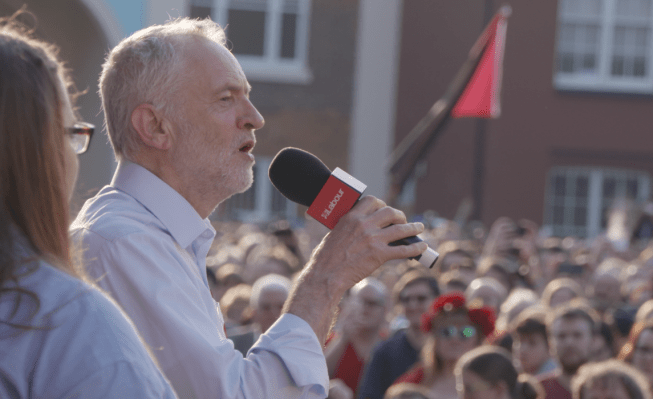How best to counteract the Facebook effect in political and other discourse? Consider a plan to create an alternative funded by public money. That was the suggestion today put forward by Jeremy Corbyn, the leader of the Labour Party in the UK, who proposed the creation of a “British Digital Corporation” (BDC) that would be a sister organization to the BBC (the publicly-funded British Broadcasting Corporation), and would work as both a think-tank to lead on digital policy and technology, as well as become the home of non-profit services to rival those that are for-profit, including a Facebook alternative.
“A BDC could use all of our best minds, the latest technology and our existing public assets not only deliver information and entertainment to rival Netflix and Amazon, but also to harness data for the public good,” Corbyn said today, in a speech delivered during the Edinburgh TV festival. “A BDC could develop new technology for online decision making and audience-led commissioning of programmes and even a public social media platform with real privacy and public control over the data that is making Facebook and others so rich.” The full text of his lecture can be found here.
The BBC today is largely financed by something called a “TV license”, where people living in the UK pay annual fees for the “right” to receive terrestrial channels. Corbyn suggested that the BDC would be run in a similar way: the government should introduce a digital license fee, he said, to supplement the TV license fee. This would be paid either by way of ISPs (who might pass the cost on to their customers), or by “tech giants”, or perhaps a combination of the two. Poorer households would pay a reduced fee.
Corbyn’s comments and ideas come at a time when the we are still getting to the bottom of just what role widely-used social media platforms like Facebook played — if not actively, then passively, as a highly influential social media platforms manipulated by others — to influence the outcome of key democratic processes, such as the Brexit referendum in the UK and the most recent US Presidential election.
In that vein, he also suggested a wave of proposals to increase transparency in media communications.
They included a Freedom of Information reform that removed ministerial vetoes and expanded it to include cases where private companies are delivering public services; allowing local, investigative and public interest journalism to be taxed as charities; asking “tech giants” to contribute to an independent fund for public interest journalism; and expanding an existing BBC scheme to foster more local journalism (which has really died a death in the UK, as it has in many other places). Digital delivery would, of course, have a big role to play in this.
The issue of there being too few for-profit tech companies that control tech services has a precedent in the media industry, something that Corbyn also directly attacked. “We must also break the stranglehold of elite power and billionaire domination over large parts of our media,” he said. “Just three companies control 71% of national newspaper circulation and five companies control 81% of local newspaper circulation.”
Corbyn, coming in the wake of moderate leaders like Tony Blair and others in his mold, is one of the more left-wing Labour Party leaders in recent times who has advocated for a much wider set of social services and a move away from for-profit organizations and their encroaching role in how these are delivered. In that context, any comments about publicly funded social media services shouldn’t come as a surprise.
And even if he is not the Prime Minister, Corbyn’s comments should not be taken lightly. In his role as leader of the opposition, his speech sets an agenda and debating points around how publicly-funded digital services might take shape in years to come. That is something that the Tories (whose leader, Theresa May, is the Prime Minister) have also been contemplating. Up to now the focus has been in areas like developing AI, 5G and cybersecurity, although with a heavy emphasis on helping fund and boost private-sector businesses.
There are a number of issues that Corbyn’s comments raise, not just about the free market, but about what a publicly-funded model might imply for startups — which are (in theory!) for profit and part of a large push to boost entrepreneurship and small businesses. Similarly, in cities like London, the same oversized tech companies that Corbyn might be criticising have had a big part to play in boosting the local economy, and threats of much higher taxes could have a chilling effect on their activities here. Ultimately, all that will need to be considered when and if we see these ideas mature from their early introduction in a summertime speech.
